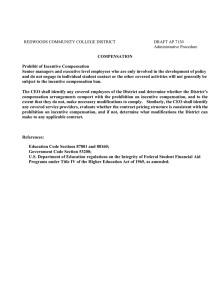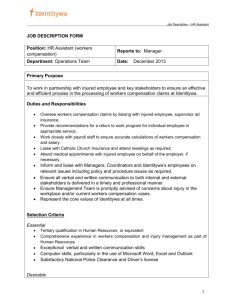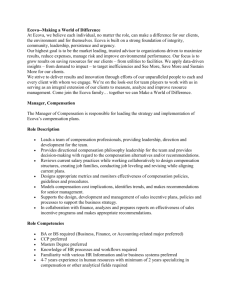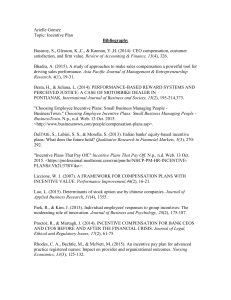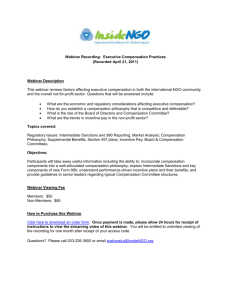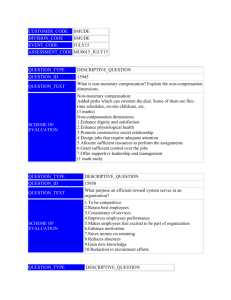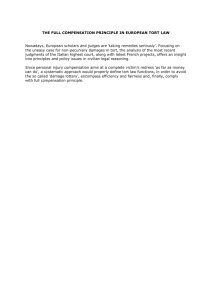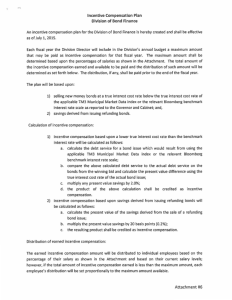Paying participants in research with healthy volunteers
advertisement
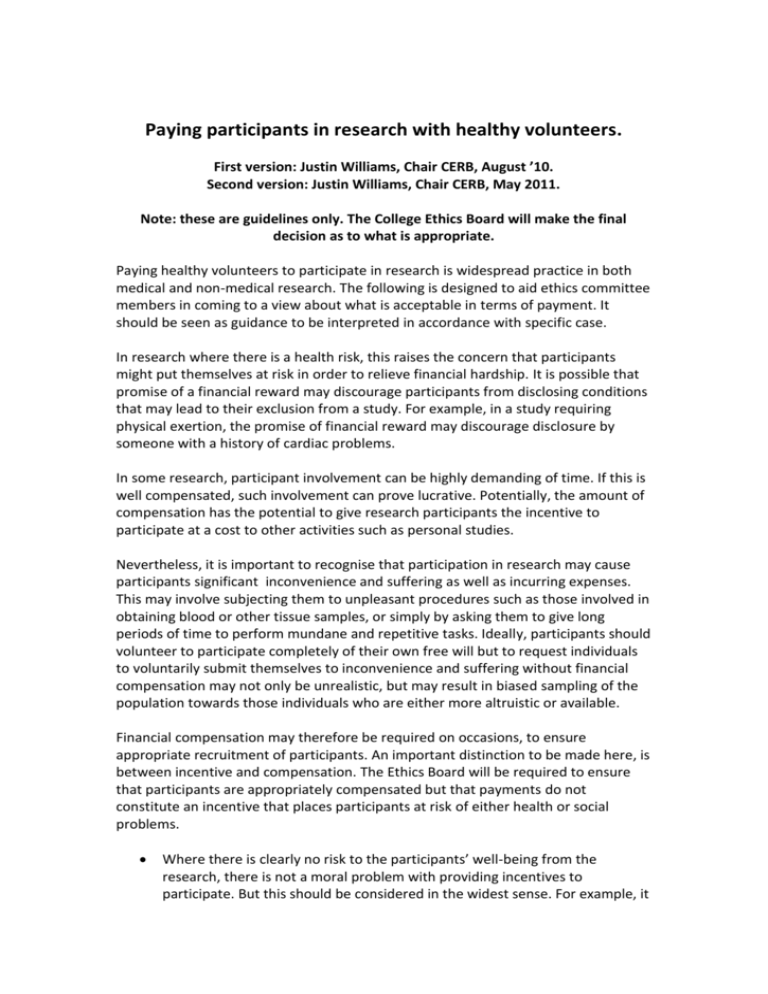
Paying participants in research with healthy volunteers. First version: Justin Williams, Chair CERB, August ’10. Second version: Justin Williams, Chair CERB, May 2011. Note: these are guidelines only. The College Ethics Board will make the final decision as to what is appropriate. Paying healthy volunteers to participate in research is widespread practice in both medical and non-medical research. The following is designed to aid ethics committee members in coming to a view about what is acceptable in terms of payment. It should be seen as guidance to be interpreted in accordance with specific case. In research where there is a health risk, this raises the concern that participants might put themselves at risk in order to relieve financial hardship. It is possible that promise of a financial reward may discourage participants from disclosing conditions that may lead to their exclusion from a study. For example, in a study requiring physical exertion, the promise of financial reward may discourage disclosure by someone with a history of cardiac problems. In some research, participant involvement can be highly demanding of time. If this is well compensated, such involvement can prove lucrative. Potentially, the amount of compensation has the potential to give research participants the incentive to participate at a cost to other activities such as personal studies. Nevertheless, it is important to recognise that participation in research may cause participants significant inconvenience and suffering as well as incurring expenses. This may involve subjecting them to unpleasant procedures such as those involved in obtaining blood or other tissue samples, or simply by asking them to give long periods of time to perform mundane and repetitive tasks. Ideally, participants should volunteer to participate completely of their own free will but to request individuals to voluntarily submit themselves to inconvenience and suffering without financial compensation may not only be unrealistic, but may result in biased sampling of the population towards those individuals who are either more altruistic or available. Financial compensation may therefore be required on occasions, to ensure appropriate recruitment of participants. An important distinction to be made here, is between incentive and compensation. The Ethics Board will be required to ensure that participants are appropriately compensated but that payments do not constitute an incentive that places participants at risk of either health or social problems. Where there is clearly no risk to the participants’ well-being from the research, there is not a moral problem with providing incentives to participate. But this should be considered in the widest sense. For example, it would be inappropriate for a student to become distracted from his or her studies through giving excessive time to participating in research. Also, the potential of incentives to bias the sample and affect the validity of a study should be considered. Where there are any potential health risks (even if they are small and only potentially present for a very small minority of participants), it is important that payment must not be offered in any way to act as an incentive. In this situation it must not be part of the initial advertisement and should only be described in the information sheet. Furthermore, it should not be overly great. It might correspond to an acceptable wage for unskilled labour. However, if unpleasant procedures are involved, further compensation for this is acceptable. For children and young people, or other vulnerable groups, where small sums of money may be perceived as having grater value than for adults, and longterm risks are underestimated, special caution should be exercised. It is preferable in these groups for compensation to be offered in material (nonmonetary) terms, or at least with gift vouchers. In the case of participation in a study being conditional upon the absence of any health problem, the consent form must include a signed statement to the effect that participants have read the exclusion criteria and do not meet them. It is important that researchers should be sensitive in the way that they offer payment. Recruitment advertisements should not state the amount of compensation being provided. A prize-draw is technically an incentive, though usually only a very small one and only offered when the research is free of any significant risk. In these cases it is acceptable to mention it in an advertisement.

